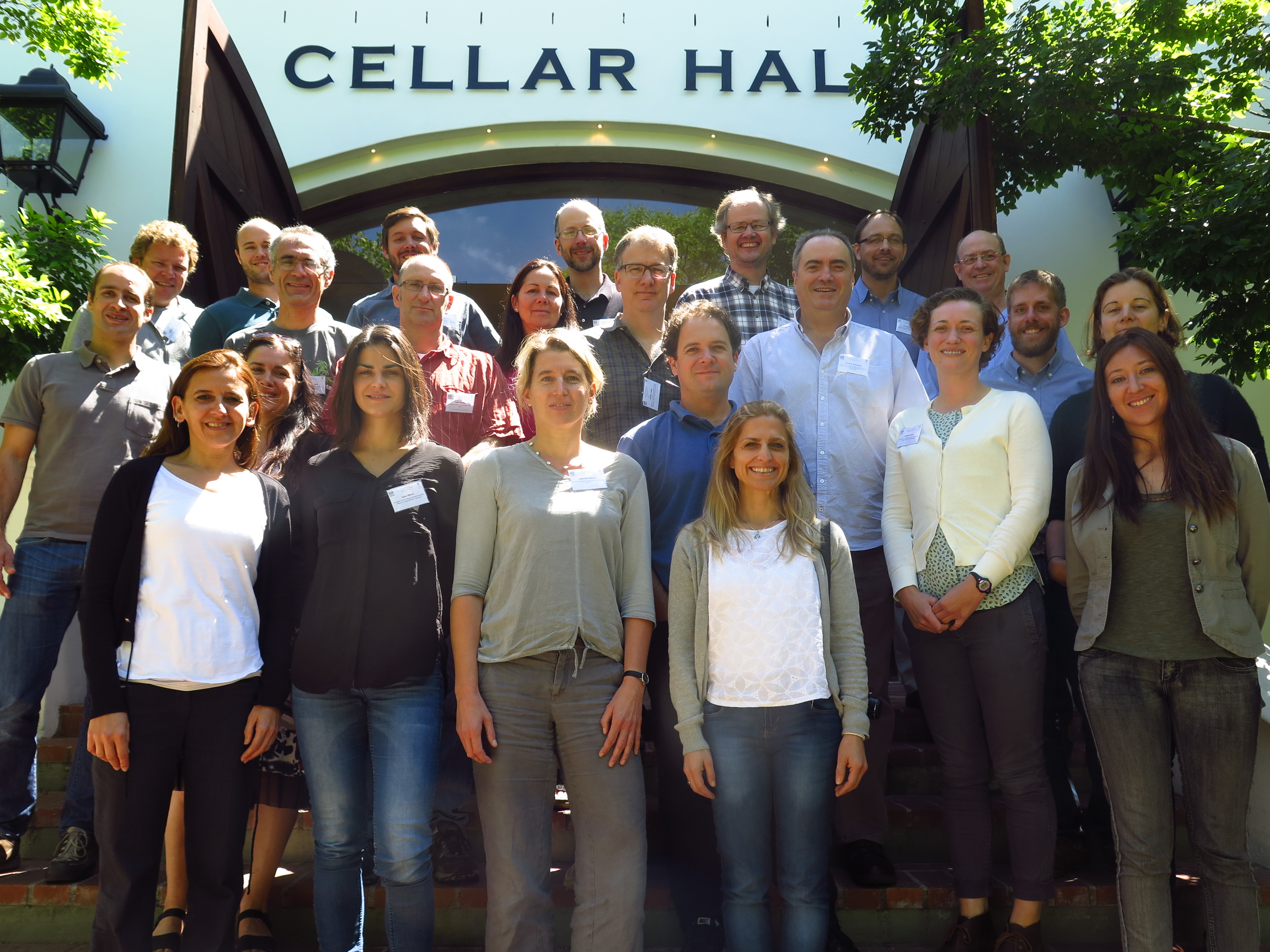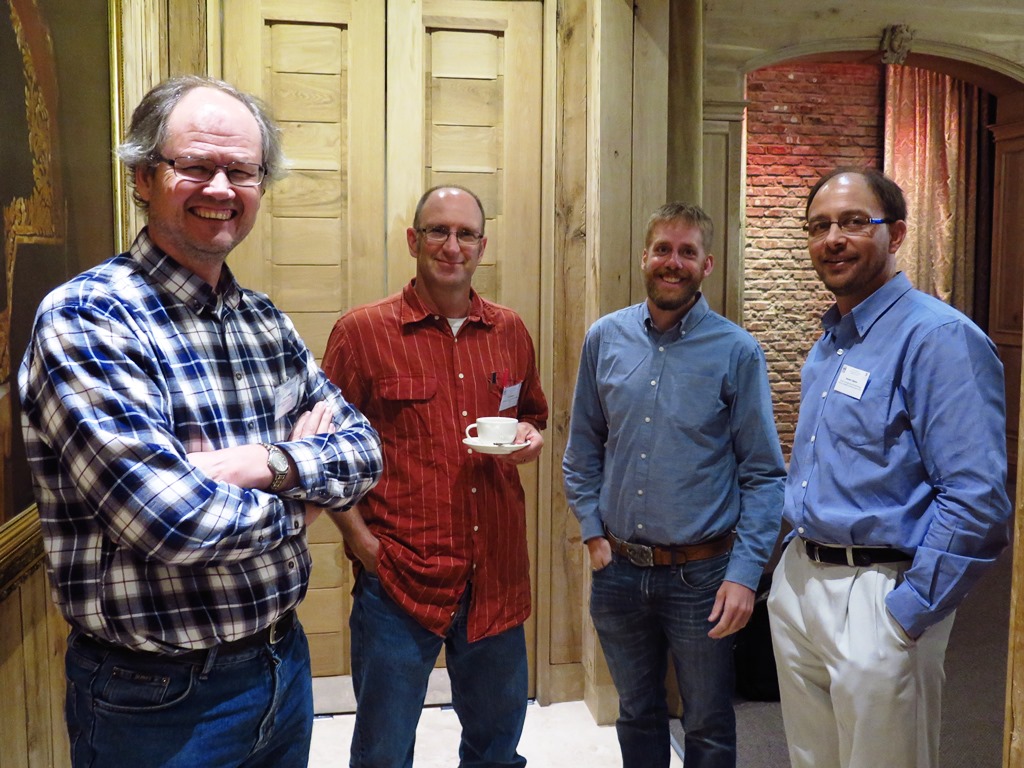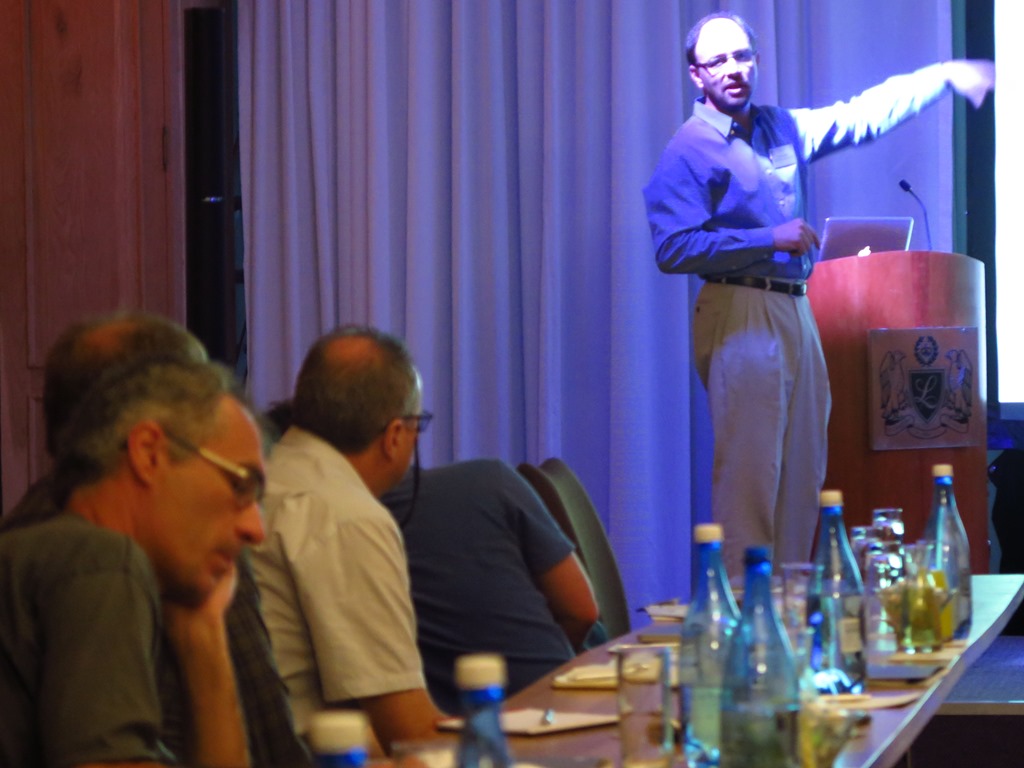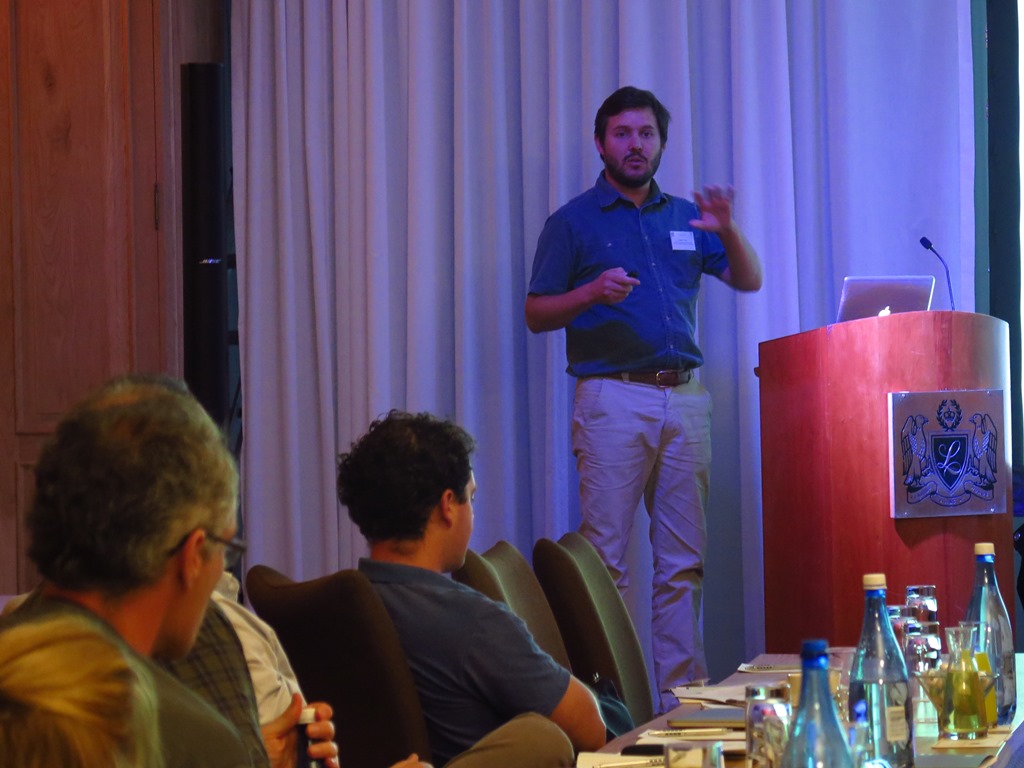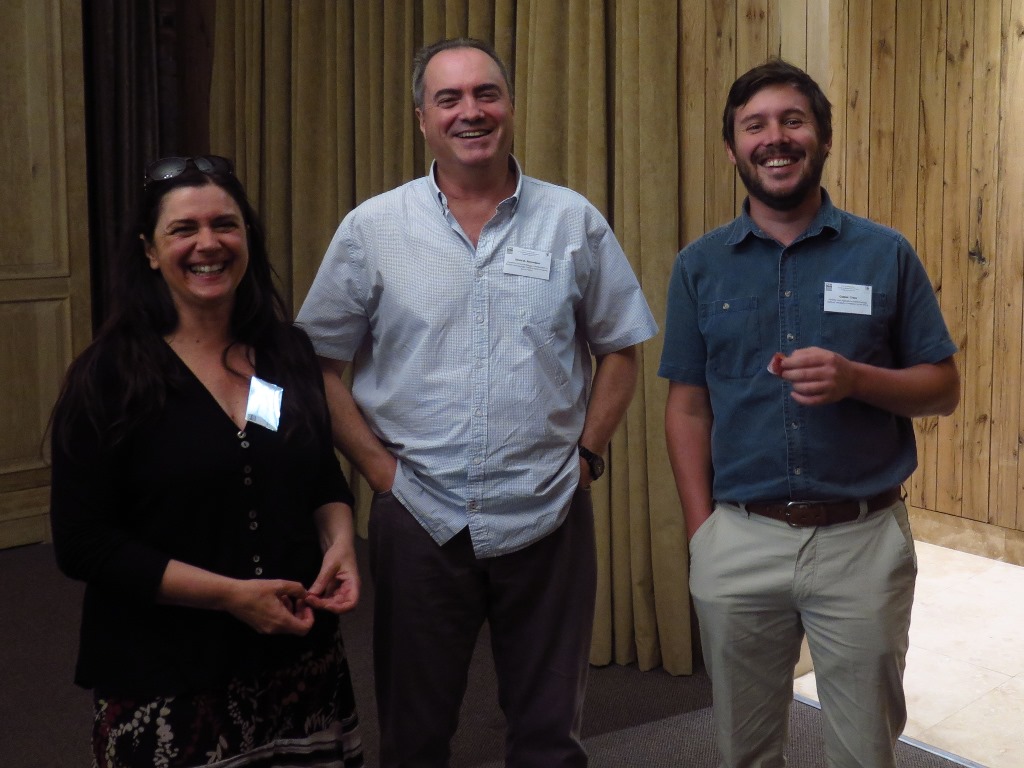FABI delegation attends international tree invasion workshop 2015-11-12
A delegation from the TPCP/CTHB research groups in FABI presented talks at an international workshop regarding the evolutionary dynamics of tree invasions: drivers, dimensions, and implications for management. FABI Director, Prof. Mike Wingfield, was joined by Prof. Bernard Slippers, Dr Casper Crous, Joey Hulburt, FABI Extraordinary Prof. Treena Burgess and Prof. Jarrko Hantula from Finland who was in the country as a guest of FABI.
The meeting, hosted by the Centre of Excellence for Invasion Biology (CIB) at Stellenbosch University on 9-10 November, had three primary aims:
- To synthesise our current knowledge on the key processes underlying tree invasions worldwide,
- To elucidate the dimensions of these processes to better understand across which temporal, spatial and taxonomic scales such changes can occur,
- To explore how such processes may bias management and control approaches and how research could reduce such biases, thereby increasing our general knowledge of, and ability to manage, tree invasions
The nexus between sustainable commodity production and sustainable ecosystems was a hot topic, and this workshop certainly helped to progress our understanding of this nexus. A special issue in AoB Plants is planned to help collate the findings and discussions during this time.
FABI and associates presented the following talks:
Prof. Treena Burgess - Phytophthora invasions: a growing threat to natural woody ecosystems.
Dr Casper Crous - A deadly game of catch-up and host jumps.
Prof. Jarkko Hantula - European tree species and invasive Asian pathogens
Joey Hulbert - Early detection and monitoring of invasive plant pests with citizen science: an international review
Prof. Bernard Slippers - A Trojan horse: Botryosphaeriaceae plant woody ecosystems pathogens are inadvertently moved globally in a latent state in healthy plant material.
Prof. Michael Wingfield - Ceratocystis cankers and wilts: Increasingly threatening native and non-native woody ecosystems globally


